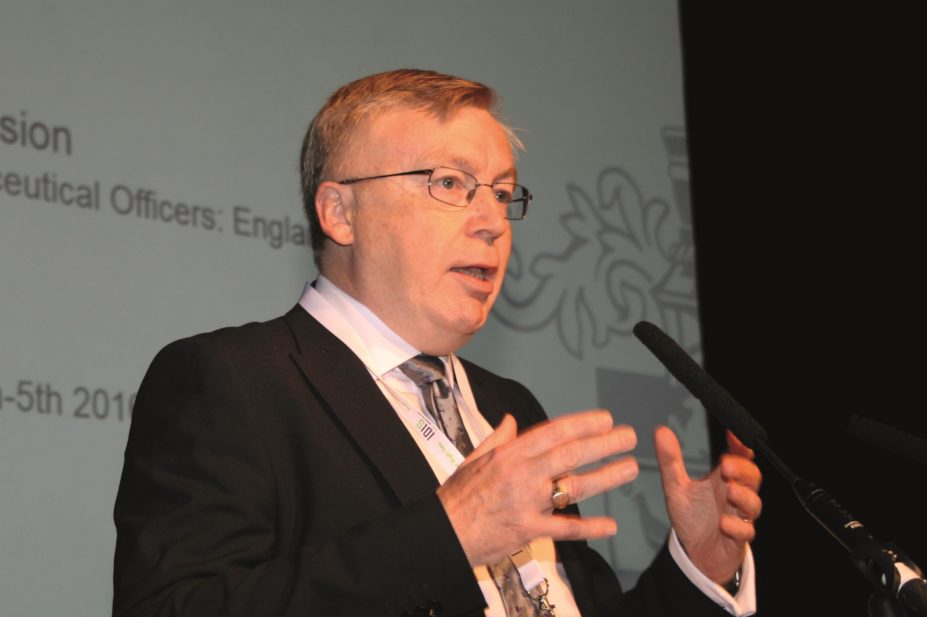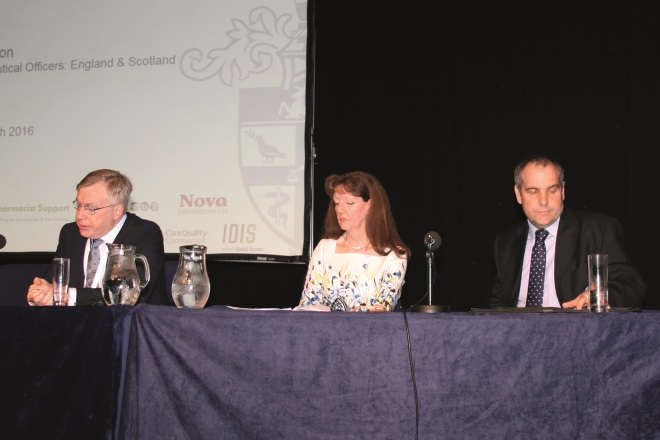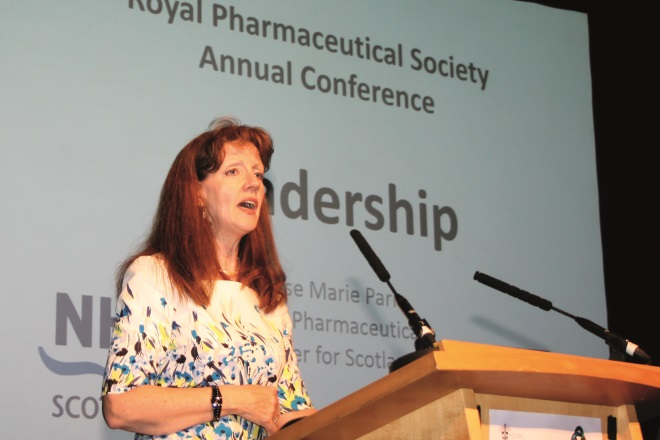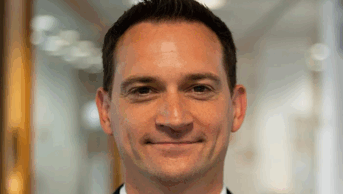
Royal Pharmaceutical Society
On social media a number of attendees to the Royal Pharmaceutical Society (RPS) annual conference expressed disappointment that the new pharmacy minister, David Mowat’s, failed to attend this years’ conference in person. A few said that he had wasted a valuable opportunity to engage with the professional body and its members.
On paper, pharmacy organisations such as the RPS welcomed Mowat’s announcement that plans to cut 6% from the community pharmacy budget would be put on hold. However, at the conference his video address was met, not with applause, but with an uncomfortable silence, suggesting that the pre-recorded format of his speech was not quite so welcome.
In light of Mowat’s speech, it was expected that the chief pharmaceutical officer’s (CPO) afternoon plenary, featuring Keith Ridge (CPO for England), would include a response or, at the very least, a reference to the surprise announcement on the community pharmacy cuts.
Instead, the plenary session safely stuck to the script with a discussion about “professional leadership”, with thoughts from Ridge, Scotland’s CPO Rose Marie Parr, RPS president, Martin Astbury and the chairs of the three RPS national pharmacy boards.

Source: Stacey O’Keefe / Royal Pharmaceutical Society
The RPS conference plenary session safely stuck to the script with a discussion about “professional leadership”, with thoughts from Keith Ridge, Scotland’s chief pharmaceutical officer Rose Marie Parr and Royal Pharmaceutical Society president, Martin Astbury
At first this felt like another missed opportunity to be discussing more pressing pharmacy matters. However, out of the session came some points about the importance of supporting the pharmacy leaders of the future that were worth paying attention to.
In Ridge’s talk he made the sensible suggestion that, in order to talk about the future of pharmacy practice, it is essential to talk to the leaders of the future; newly qualified pharmacists and students, rather than just going to current presidents, chairs and chief executives.
“It’s a group of people I suggest we ignore at our peril but are often only paid lip service, it’s easy to go straight for the current leaders of our profession. The future of our profession see themselves as clinicians, immersed in technology in a way that people like me will never understand.”
“There is a feeling of frustration whether in hospital or community,” he said, “younger people expect more, and there’s nothing wrong with that.”
Peter Noyce, chair of the Pharmacist Support board of Trustees, agreed that many students are currently feeling dispirited. He said that the fastest growing demand on the Pharmacist Support charity at present is from pre-registration students, who, rather than presenting a picture of pharmacy which is inspiring, present the perspective that they are disheartened and exploited during the pre-registration period.
Noyce asked the panel what advice they would give to pharmacy students today and for those starting soon – “how do they navigate and survive to get to this utopian future?”
Ridge’s advice for student pharmacists was to engage more with current leaders: “Make it very clear to people like me what you want from that future and then we will spend the next five years trying to deliver that.” He drew attention to the RPS’ ‘Now or never: shaping pharmacy for the future’ report saying that, as a profession, there is a need for pharmacy to become more confident as a profession and put in place the infrastructure needed to shift the pharmacy into a clinical future. “If you look at other [healthcare] professions over the past few decades they have definitely shifted to becoming more professionally centred – pharmacy still has some time to get there.”
RPS president Martin Astbury added to Ridge’s comment by calling for further new roles for pharmacists, saying that the belief that there is currently an oversupply of pharmacists will change once the skills of pharmacists are being utilised properly. He also said that employers are currently exploiting young pharmacists by paying them too little and that this unethical practice needs to stop.
“Everyone thinks junior doctors have a hard time, but if you look at graduate pharmacists – they work every other weekend, not just one but both days and they are earning less than they were 15 years ago,” he said.
Parr added that it is in the hands of current leaders to create an environment where the leaders of the future can practise more clinically and professionally. “These young people with brains the size of planets — the future is bright, it is for them, they want to practise clinically, they want that accountability — we have the responsibility to change practice.”

Source: Stacey O’Keefe / Royal Pharmaceutical Society
“One of our problems is how do we pay for pharmaceutical care and not for items dispensed?” asked chief pharmaceutical officer for Scotland Rose Marie Parr during the plenary session at the RPS conference
“One of our problems is how do we pay for pharmaceutical care and not for items dispensed?” she concluded.
The primary issue brought to light by the discussion was that pharmacists, both young and experienced, are still not being valued as clinicians and professionals, whether by healthcare colleagues or by the public. In order to get to this point, pharmacy leadership needs to be innovative and collaborative and, perhaps most importantly, courageous in order to lead the way towards an improved future for pharmacists.
With all sectors and stages of the profession currently facing pressure from a number of different directions — including the delayed, but apparently inevitable cuts to community pharmacy and countless efficiency savings being made in the NHS — this is a critical time for our leaders in pharmacy and government to show courage and be held accountable. Whether or not these qualities are present, they cannot be demonstrated via a brief and disconnected pre-recorded video. At this time, pharmacists need leaders who will physically stand in front of them and engage.
This ‘disconnect’ has been amplified further by the recent news that the pharmacy cuts ‘package’ will be announced in the next month with scant regard to the profession, despite Mowat declaring just a couple of week’s previous his desire to “work closely” with the pharmacy profession.


